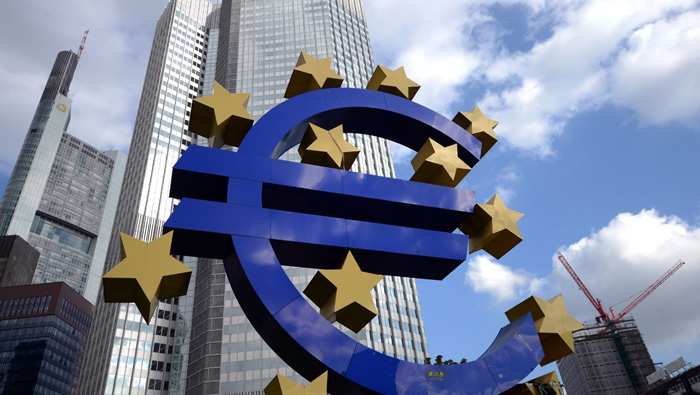
London: Eurozone business growth was at its slowest since the start of 2015 this month as stronger performances in the two big economies of Germany and France offset weakness in smaller countries, a survey showed on Friday.
While the survey result was not as weak as predicted in a poll, the slight loss of momentum may be of concern to policymakers at the European Central Bank who have been trying to stimulate faster growth.
Markit's flash composite Purchasing Managers' Index (PMI), seen as a good growth indicator, dipped to 52.9 from June's 53.1, the lowest reading since January 2015. However, a poll had predicted a steeper fall to 52.5. A reading above 50 indicates growth.
"Headline PMIs picked up for Germany and France but the overall (euro zone) one fell and the rest of the region combined saw the weakest rise in activity since December 2012," said Chris Williamson, chief economist at Markit.
"There is a strong indication that Italy and Spain saw a deterioration in growth rates." German private sector growth hit its highest level so far this year while French business activity held up better than expected despite last week's Bastille Day truck attack in Nice.
The attack on holiday crowds killed 84 people and hurt hundreds, the third deadly assault in France in 18 months for which Islamist militants have claimed responsibility.
Further muddying the waters, Britons voted on June 23 to leave the European Union, a surprise outcome that sent shockwaves through global financial markets and means the British economy may slide back into recession in the coming year.
"It's a pretty pleasant surprise that the fall (in the euro zone PMI) was so muted. It suggests that Brexit is unlikely to trigger the substantial slowdown that many people are predicting," said Ben May at Oxford Economics.
Shockwaves from the vote did not pass Britain by, however, with a corresponding survey there registering the biggest drop in its 20-year history to suggest the economy is shrinking at its fastest rate since the financial crisis.
After the ECB kept policy unchanged on Thursday, its President Mario Draghi said the central bank was prepared to take more action to lift inflation and economic growth if necessary. Inflation was just 0.1 per cent in June, nowhere near the ECB's target ceiling, but the composite output price PMI rose to 49.6 from 49.1, its highest reading in nine months.
A PMI covering the euro zone's dominant service industry beat expectations for a fall to 52.3 from 52.8 by only nudging down to 52.7, still an 18-month low. The factory PMI suffered a sharper fall, coming in at 51.9 versus June's 52.8, close to expectations for 52.0. An index measuring output, which feeds into the composite PMI, fell to 53.6 from 53.9.